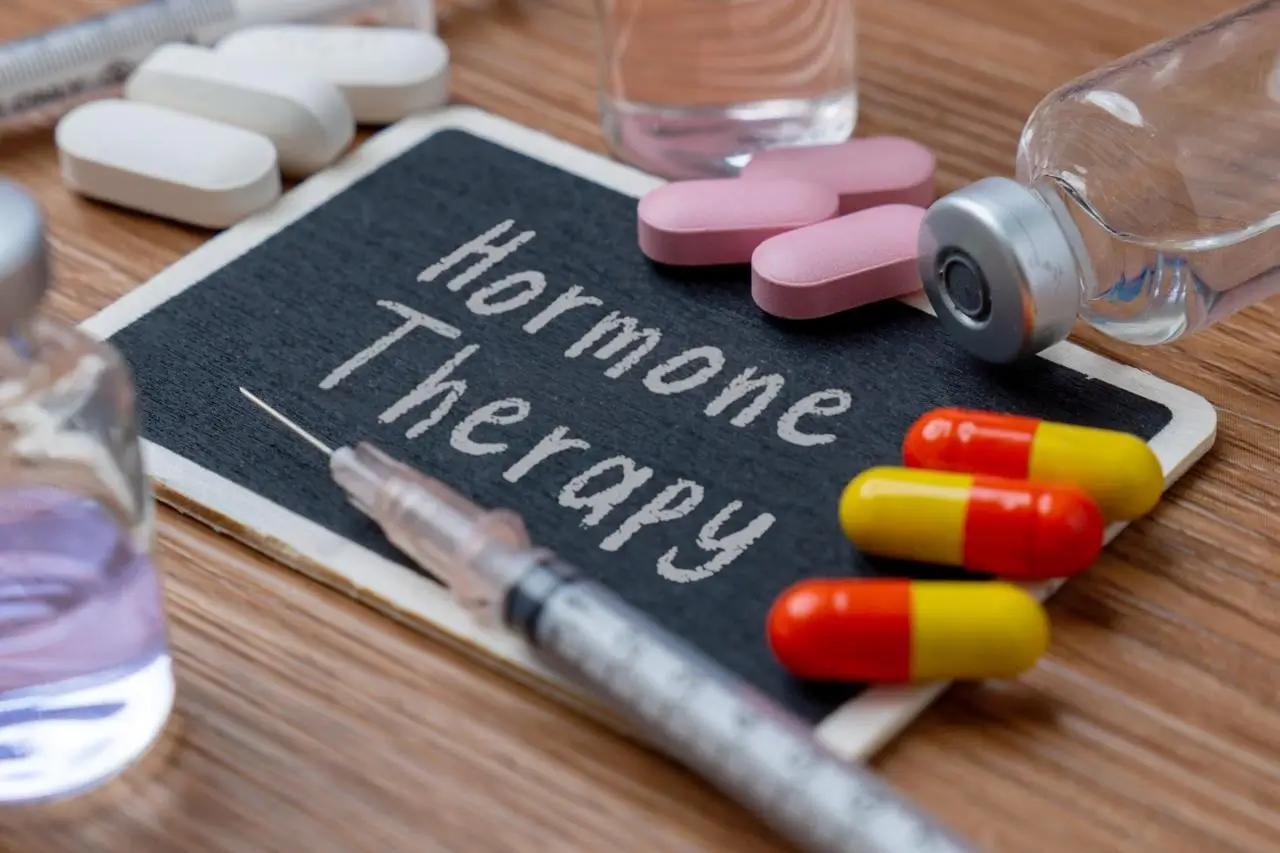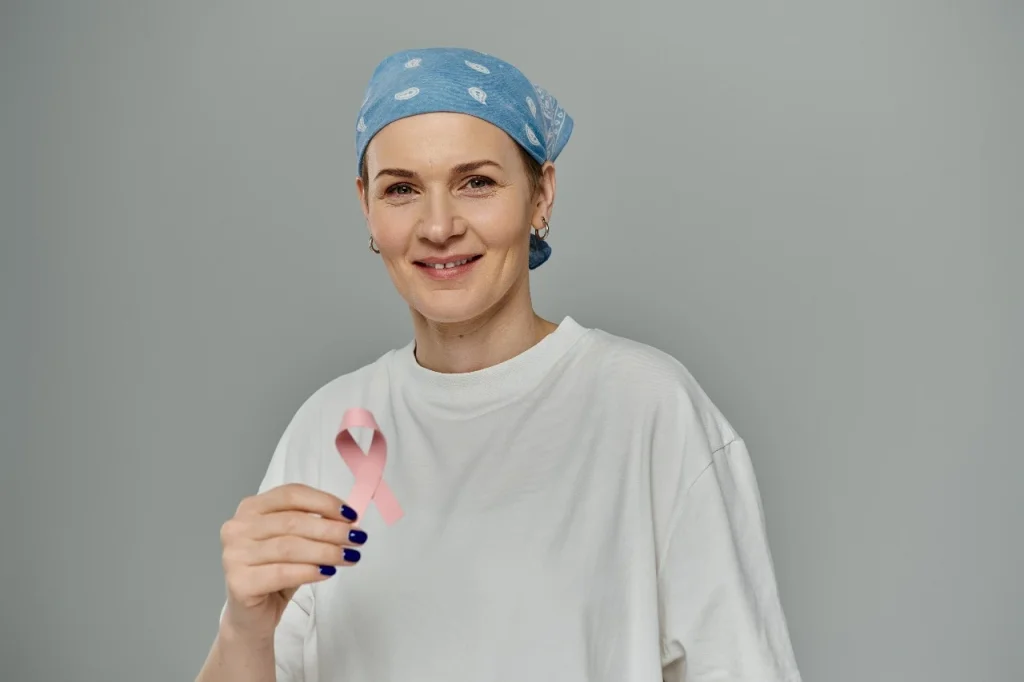

It’s often said that women have an almost magical ability to sense when something isn’t right — in their families, their relationships, their bodies. But sometimes, even the most intuitive among us silence that inner voice.
We brush things off — a little fatigue, some tenderness, a strange heaviness — because life doesn’t pause for our discomfort.
Yet, when it comes to breast cancer symptoms, listening to those whispers could be the difference between catching something early and letting it grow quietly, unseen.
This isn’t just another article about lumps and mammograms. This is a conversation — woman to woman — about the subtle, often-overlooked signs that deserve your attention, and about honouring your body by truly listening to it.
When we think of breast cancer, most of us immediately picture a lump. It’s what movies, posters, and check-up reminders tell us to look for. But in reality, not all breast cancers start with a lump.
Sometimes, the first signs are far more delicate — small shifts that are easy to ignore when life is moving fast.
A slight tightening under your arm. Skin that feels different when you towel off. A bra that suddenly fits differently even though your weight hasn’t changed.
Many women who are later diagnosed say the same thing: “I just felt something was off, but I couldn’t explain it.”
That intuition matters. It’s often the first alarm bell — the one that rings softly before science can catch up.
The skin on your breast can be one of the first to speak up when something isn’t right.
Look for:
Dimpling or puckering, almost like the surface of an orange peel.
Thickening or swelling in a specific area.
A patch that suddenly looks reddish, dry, or flaky (especially around the nipple).
These changes may seem harmless — maybe an allergy, a tight bra, or dry skin. But they can also point to inflammatory breast cancer (IBC), a rare but aggressive form that doesn’t always cause a lump.
If you see skin changes that persist beyond a few days or weeks, listen to that small nudge of concern. It’s your body asking for a closer look.
Most breast pain is hormonal — linked to your menstrual cycle, pregnancy, or perimenopause. It comes and goes, usually easing once hormones rebalance.
But if you notice:
Pain that’s localized (only in one spot),
Pain that lingers beyond your cycle, or
Pain that feels deep, burning, or pulling rather than tender —
…it’s worth discussing with your doctor.
Many women dismiss pain because they’ve read that “breast cancer doesn’t hurt.” That’s not always true. While many cases are painless, pain can sometimes be the only early symptom — especially in cancers growing close to the chest wall or nerve endings.
Our bodies change over time — that’s normal. Weight gain, pregnancy, and hormones can all affect how our breasts look and feel.
But asymmetrical changes — where one breast suddenly looks or feels different from the other — should always be taken seriously.
Watch for:
One breast becoming suddenly larger or firmer,
The nipple turning inward or flattening,
Unexplained swelling around the collarbone or underarm, and
A general sense that something feels “off” when you dress or lie down.
These are not always signs of cancer, but they’re worth exploring.
Your nipples are like little messengers — sensitive, reactive, and often the first to show internal change.
Pay attention to:
New inversion or flattening (especially if it wasn’t always like that),
Discharge (clear, milky, or bloody) when you’re not breastfeeding,
Scaling or crusting of the nipple or surrounding skin, and
Itching or burning that doesn’t improve with creams.
Conditions like eczema or infections can cause similar symptoms — but so can Paget’s disease of the breast, a rare form of cancer that starts in the nipple ducts.
Don’t panic, but don’t postpone either. A simple test can often bring peace of mind.
Sometimes, the first place breast cancer spreads is not in the breast itself, but in the lymph nodes near the underarm or collarbone.
If you notice a firm lump, tender swelling, or persistent fullness in these areas, it could be your lymphatic system reacting to something.
Think of it as your body’s silent alarm system. It’s not just there to filter illness — it’s there to alert you when something deeper needs your care.
One of the most heartbreaking stories doctors hear is from women who say, “I just thought I was tired.”
Fatigue that doesn’t go away, even after rest… slight, unexplained weight loss… or a feeling that your body is “slowing down” — these may not scream “breast cancer,” but they whisper imbalance.
When combined with other symptoms, they can provide an important clue that something systemic is happening.
And here’s the truth: you don’t need to wait until it’s obvious. You can act on a feeling. You have every right to ask for tests, to insist on a mammogram, to trust your instincts.
When women talk to women, something powerful happens.
We start to notice patterns that medical checklists miss — the emotional side of symptoms, the nuances of how “change” actually feels.
“For me, it wasn’t a lump,” says Anita, 46. “It was a tightening, like wearing a bra one size too small. My doctor said it was probably nothing, but something told me to get it checked. I’m glad I did.”
“My nipple just looked different one morning,” recalls Meera, 52. “It wasn’t painful, just… odd. I’m grateful I didn’t ignore it.”
These stories matter. They remind us that intuition is not superstition — it’s biology combined with awareness.
Let’s be honest — women are conditioned to endure.
We normalize discomfort, we prioritize others, and we minimize our pain.
“It’s probably hormonal.”
“It’s just age.”
“It’s nothing serious.”
Sound familiar?
But here’s what needs to change: awareness isn’t anxiety. Listening to your body isn’t overreacting. It’s self-respect.
By paying attention, by making that appointment, by talking openly about breast health — you’re not being dramatic. You’re being wise.
Modern research shows that early detection is not just about survival — it’s about preserving quality of life.
When breast cancer is found at Stage 0 or I, the 5-year survival rate is over 98%.
Women who detect symptoms early often require less aggressive treatment and recover faster.
Regular self-exams combined with annual screenings increase detection rates significantly.
But science also highlights something fascinating:
Women who are body-aware — who notice subtle changes, track patterns, and act quickly — tend to have better outcomes.
Intuition, it seems, is not just emotional wisdom — it’s biological intelligence.
Here’s a gentle practice you can start today — no medical tools, no jargon, just mindfulness and care:
Choose one day each month — maybe the first Sunday — and take five quiet minutes.
Stand in front of a mirror and observe your breasts. Look for shape, size, color, and skin changes.
Raise your arms and check under your armpits and collarbone.
Feel for changes — not just lumps, but textures, tightness, or tenderness.
Note how you feel overall. Are you more tired lately? Any aches or shifts in mood or appetite?
This isn’t about fear. It’s about friendship — with your body.
If there’s one thing women understand, it’s the power of connection.
When we share, we heal. When we talk about symptoms, when we remove shame from the conversation, we don’t just protect ourselves — we protect generations.
Imagine a world where breast health is discussed as naturally as skincare or diet.
Where mothers teach daughters not just how to care for their hair, but how to listen to their hormones and bodies.
That’s the kind of quiet revolution that saves lives.
Your body isn’t betraying you. It’s communicating with you, sometimes softly, sometimes urgently.
Every ache, every flutter, every change has a reason.
And while the internet can offer a thousand possible causes, you are the only one who knows how your body truly feels.
If something feels different, don’t dismiss it. Don’t wait for it to fit a Google checklist.
Call your doctor. Ask questions. Get checked.
Because the truth is: you deserve peace of mind, not second-guessing.
And you deserve a life that isn’t ruled by fear, but guided by awareness, love, and care.
Remember: Early doesn’t just mean diagnosis — it means courage, compassion, and care.
This isn’t just about breast cancer.
It’s about honouring yourself — the woman who gives, loves, nurtures, and now chooses to listen. 💗
Dense breasts can feel lumpy or textured even when they’re healthy, which can make self-checks confusing. The key is to know your normal — the patterns, the feel, the rhythm of your body. If you sense a new tightness, change in texture, or an area that suddenly feels different from the rest, don’t brush it off. Even if it turns out benign, getting it checked gives you clarity and confidence, not fear.
You’re not overreacting — you’re overdue for kindness to yourself. Women are conditioned to minimize their discomfort and prioritize others. Reframing self-checks and doctor visits as acts of respect instead of fear changes everything. You’re not being dramatic — you’re being proactive. That’s courage, not anxiety.
Emerging research and clinical observations suggest that long-term stress can influence hormonal balance and immune response — two systems deeply linked to breast health. While stress alone doesn’t cause breast cancer, healing emotionally, setting boundaries, and nurturing calm can support your overall well-being and resilience. Think of it as strengthening both your mind and your cells.
Yes — and you should never feel hesitant to ask. Mammograms, while essential, are not perfect. Dense tissue, early-stage cancers, or certain tumor types can be missed. If your instincts say something’s off, request an ultrasound or MRI. A good doctor will always take your intuition seriously — because early doesn’t always mean visible.
Start with someone safe — a friend, sister, or your doctor. Sometimes, just saying, “I noticed something small, but it’s been on my mind,” can open the door. The more we talk, the more we normalize these conversations. When women speak about their bodies with honesty and gentleness, shame dissolves — and awareness grows.



 ×
×

